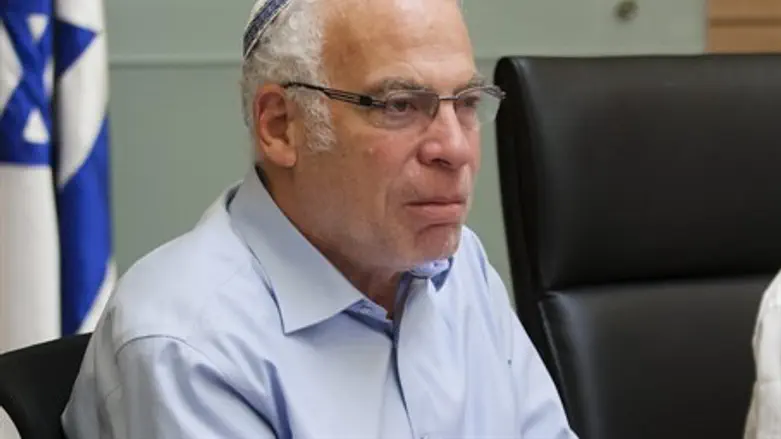
At a Bayit Yehudi (Jewish Home) meeting ahead of the Jerusalem municipal elections MK Uri Ariel, Israel's Housing Minister, said there is no reason to bow to international pressure to halt building in the capital.
At the meeting last Monday, Ariel told the crowd that there had been no new building authorized in years and that the prime minister was to blame.
The minister repeated several times that across the whole city there was no new building. "Everything that you see being built today is what was authorized two years ago" he said.
The Housing Minister addressed dozens attending the meeting and said, "Imagine in any country, the most remote place you can think of, that would say it was forbidden for ten Jewish families to build homes. What would everyone do?" he asked the crowd. "We would take to the streets, demonstrate, and scream, and say it was anti-Semitism," he answered, "but here," he added, "it just happens."
Ariel was asked who was to blame for the lack of building, and said decisively, "My boss is to blame for this… who won't allow us to build."
He also lashed out at others who he said quietly acquiesced to the freeze. "Who is keeping quiet about it this? Has the mayor ever called out and said let's protest about this?" He asked. "The prices are going up, and young couples are leaving the city," he said.
"After applying great pressure a few months ago, we authorized a few hundred housing units," but he added that Jerusalem needs around 4,000 new housing units every year in order to stabilize the rising prices. "If you don't build of course, the prices are going to rise," he said.
MK Ariel encouraged those present to vote for Dov Kalmanovitz' Jewish Home list for the city council who he said would fight for more renewed building in the capital.
Many countries are critical of Israeli construction in Jerusalem east of the 1949 armistice line, in neighborhoods that were under Jordanian control from 1949 until the Six Day War in 1967. The Palestinian Authority claims the neighborhoods in question as the capital of a future Arab state.